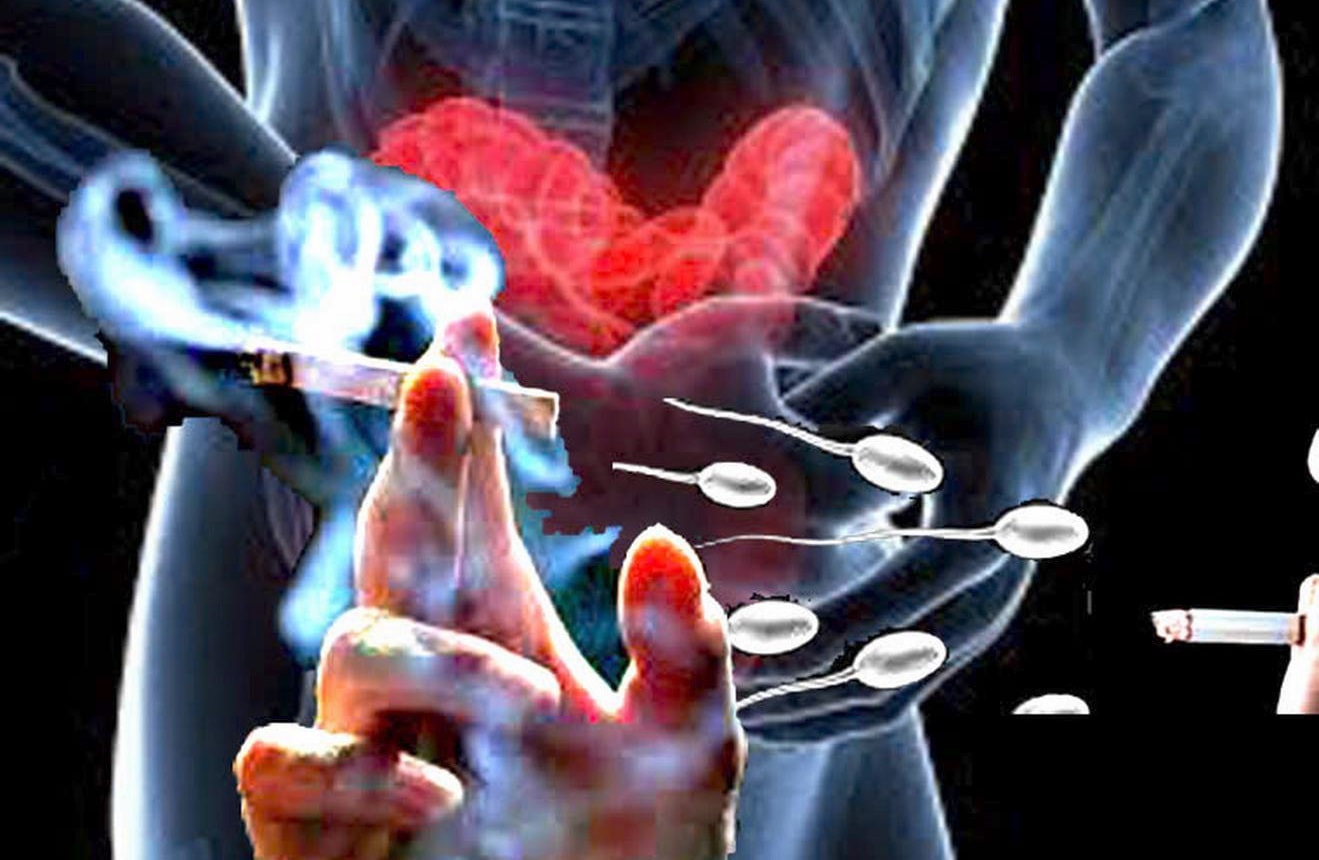Don't let cigarette smoke steal your role as a father or mother.
Smoking reduces fertility and causes sexual dysfunction in men; it damages oocytes, causes hormonal abnormalities, disrupts fallopian tube function, leads to premature menopause, and causes spontaneous miscarriage in women.
Smoking reduces fertility and causes sexual dysfunction in men.
Studies have shown that the main metabolites of tobacco smoke (substances in inhaled smoke that are then metabolized in the body) are found in semen. Some substances even concentrate there (cotinine, trans 3-hydroxycotinine).

The components of tobacco found in semen contain substances that can inhibit the activity of the choline acetyltransferase enzyme system. This enzyme is essential for sperm to function. Compared to non-smokers, men who smoke have lower levels of testosterone (a hormone necessary for sperm production) and higher levels of follicle-stimulating hormone (a feminizing hormone).
Smoking reduces sperm count: Depending on the amount of cigarettes smoked, smokers experience a decrease in sperm count to varying degrees (this is more pronounced in heavy smokers). Smoking causes inflammation of the reproductive system, making it difficult for sperm to penetrate the egg.
Smoking causes erectile dysfunction:Smokers are twice as likely to develop erectile dysfunction due to atherosclerosis in the penis, which reduces blood flow—a condition known as vascular erectile dysfunction. 82%–97% of men with vascular erectile dysfunction are smokers. The risk is higher in men who have smoked for a long time, and even higher in heavy smokers.
Besides erectile dysfunction caused by atherosclerosis, smoking also leads to erectile dysfunction due to vasoconstriction (reducing blood flow because the arteries narrow); just smoking two cigarettes can cause acute vasoconstriction of the penile arteries.
Smoking not only affects reproductive and sexual function in men, but it also causes bladder cancer. While it's not definitively known that smoking causes prostate cancer, studies have shown that in men with prostate cancer who smoke, the invasiveness and metastasis of the cancer are increased.
The harmful effects of tobacco on female fertility.
Women who smoke more than 15 cigarettes a day will have a longer time to conceive. But women who smoke not only have difficulty conceiving but also face several challenges in nurturing the fetus. The more a woman smokes, the more it affects her fertility. There are many reasons why the fertility rate of women who smoke tends to be lower than that of women who do not smoke.

Damage to the oocyte:Smoking can affect or even destroy oocytes (eggs), thus leading to reduced fertility.
Hormonal abnormalities:Smoking alters the levels of several hormones, including estrogen and follicle-stimulating hormone. Therefore, ovulation may not occur normally in smokers.
Fallopian tube dysfunction:Several studies have found disruptions in fallopian tube function in women who smoke. Increased hormone levels lead to changes in the normal passage of eggs through the fallopian tubes. In some cases, these hormonal changes can increase the rate of embryo implantation in the uterus. One study found that the risk of birth defects was 2.2 to 4 times higher in smokers than in non-smokers.
Spontaneous miscarriage:Studies have shown that smokers have a 1.5 to 3.2 times higher risk of spontaneous miscarriage compared to non-smokers. Women who smoke may also have impaired ability to maintain a pregnancy.
Early menopause:The primary reason for early menopause is that smoking reduces estrogen levels in a woman's body. While all older women experience a gradual decline in estrogen after age 40, women who smoke tend to begin menopause 2 to 3 years earlier than non-smokers.



